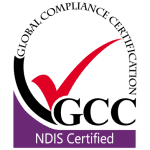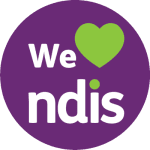Children with sensory processing disorders (SPD) or developmental and learning disorders often have difficulty participating in their typical daily activities and may not achieve their fullest functional capacity. Children with SPD experience their world as either hypersensitive or hyposensitive and may react with strong emotional behaviours and experience what is often described as a “meltdown”. When there is sensory dysfunction, sensory information can be disorganised and makes it difficult to make sense of the environment. These difficulties have secondary behavioural, social-emotional difficulties, developmental delays and impact on academic performance. Grace Occupational Therapy host a series of Get Sensory Savvy Parent and Teacher Education workshops aimed to supporting early educators and families and providing education around managing children with Sensory Processing Disorders. Effective intervention for SPD is available, understanding the disorder and how to manage it is the key and can help improve the quality of life for the children and families.
Grace Occupational Therapy have a number Sensory focussed intervention strategies which includes helping parents to understand and develop Sensory Diets that work, The Listening Program & Therabrushing Technique.
Auditory Processing Strategies
Programs that focus on auditory processing can help children that are sometimes referred to as “out of sync”. Children with Sensory Processing Disorder, ADHD, autism, learning or memory programs can sometimes benefit from a “listening” program or strategies and equipment that can dull down sounds or change the way the sounds around us are transferred.
Sound is everywhere, it is as much a part of our lives as the air we breathe and the food we eat. Yet, many children become distressed or uncomfortable with sounds in their home, school and community. Negative sound exposure can impact on sleep, attention, learning, concentration and communication.
Therapeutic Sensory Tools
Grace Children’s Therapy uses a number therapeutic sensory tools to help engage and regulate your child. We often need to use our detective skills to work out which tools and strategies works best for the achieve your child’s functional goals. Our therapist use sensory based strategies in combination with a play-based approach and meaningful activity to help progress your child.
Some of the tools and strategies we use include;
- Astronaut Program
- Social Thinking Curriculum
- Alert Program for Self Regulation
- Zones of Regulation
- Auditory processing tools & equipment including the Soundsory Program
- Oral-motor tools & equipment
- Various transactional supports


